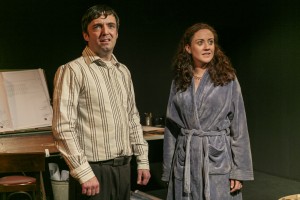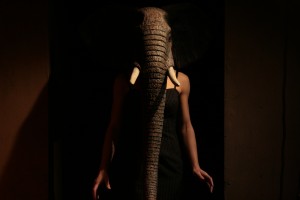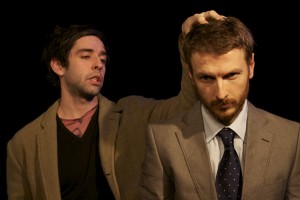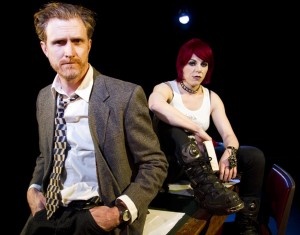I’m writing this as a blog… Yes a Blog! I’ve never really blogged before so I thought I’d try it.
You probably know my notes and posts and things from Facebook about all kinds of different forms of stuff to do with acting and the dramatic arts. If you don’t, mostly what I write are responses to conversations with my students, fellow actors and to general moods that seem to be pervading. I do tend to get nice responses that they are often helpful.
What I wanted to respond to here is what seems to be a pervading sense recently from some actors that they feel inferior to the whole business of becoming an actor. It seems an impossibility. It seems that certain people get molly-coddled into positions of influence and get all the breaks while you get none. As such you go seeking influence. You go seeking friendship or preference. We call this networking. One actor recently told me that he was at a talk where someone from “the industry” said that if you are an out-of-work actor the best job you can get is being a waiter or bar-staff at places frequented by stars or directors or other people of influence. Then you have a chance of getting “seen”. Others have told me that the only criteria for them choosing an acting course or acting school is the propensity for the name of the school propelling them to success or influential people noticing them in the course.
And that’s fine… kind of. But what if you work in that bar and can’t do your evening studio classes that will make you a better actor… and nobody notices you because to them you are a waiter… not an actor. What if you go to that school and spend all your money and then find out that you didn’t get noticed by anyone and have to do the same hard slog as every other actors that’s trying to make themselves the best actor they can be, garner an audition and then prove it to the world? And all the while you weren’t concentrating on the training, but trying to get noticed, so you still haven’t become a good actor?
Ok, I’m going to respond to this in the right way I hope. First of all, I’m not suggesting that you don’t train. Quite the opposite in fact. (Of course I’d say that, I’m an Acting Teacher.) But when you do, you need to learn something very solid that will make you an exceptional actor. If you don’t, you can hang around in bars all you like, nothing’s going to help you. Secondly, networking is, for the most part, a gyp. I’ve only tried it once or twice myself and found it nauseating. I was being relentlessly hit on by attractive people until they worked out that I couldn’t make them a star and then they disappeared only to be followed by another sycophant. And all the time, I was the one who was trying out this networking thing in the hope that I could meet someone who might be able to give me a boost. The idea that I could make these people good actors meant nothing to them at all. They didn’t care about acting as an art form, they just wanted the fame and fortune attached to it for a tiny handful of extremely fortunate people on this planet.
Now here’s me name-dropping. I went to the same acting school around the same time as Sam Worthington. I did a short film 20 years ago with Joel Edgerton. There’s others I could name. So why am I not where they are? And why are they where they are? First of all, my life went in other directions. I married an Irish girl who wanted to move home and so my trajectory of acting in Sydney in those days was broken. However, in Ireland I have an agent and have been on lots of cool stuff on the TV including Game of Thrones and The Tudors to name just a couple and I did it without networking at all. Frankly my education as an actor developed much more during my University degree than it did at acting school, and then it flourished by the influence of a couple of really amazing individual teachers. However, that said, I also had an insatiable appetite for directing, writing, and most of all teaching within this art form of acting. All of the things I’ve done in those other fields could not have been achieved if I was where Joel and Sam are now. Joel and Sam got where they are by auditioning, getting the gigs, being seen IN those films (not in a bar or something) and then got more stuff. Yeah, but they’re pretty, I hear you say. The camera makes you pretty. The screen turns you into a giant. Those guys are just guys like you and me. They’re good looking sure, but they’re not some kind of Zoolander models. Nor is Cathy Bates and Brendan Gleeson or anyone else by the way. If you get screen training… and I mean screen training that has an actual technique built in, in which you learn to build your relationship with the camera, you too can be a giant on it, especially once you get the experience of being in front of it over and over again. But no one can tell that from you in a bar. You need to work at it to become extraordinary at it. That’s why I film incessantly in my studio and we apply a specific technique to what we are doing over and over and over again.
Ok, so I’ll stop talking about myself. I only do it to help but it can appear self-serving. Ask yourself what you want? I wanted to act, to direct, to teach and to write. I have done all of them and still do. Conor McGregor wanted to fight in the UFC and become a champion. Very focussed, very specific. He worked like hell for it too and got it… and then got knocked down and got up again. Joel and Sam wanted to be where they are and worked for it. They may fall off that A list. Shit happens. Yes it’s true that a lot of actors also work very hard to get it, and don’t get it, but that’s life. Remember this is the hardest game of them all.
So what do you do? You need to work hard. You need to get yourself in front of the camera and do excellent work on it. If it’s the stage, you have to get on the damn thing and get people to see you being incredibly good. You need to engage constantly with the art of acting. Weekly, daily, hourly if you can. How do you do that? You need to train. And I mean work like a dog but work right. I’m not here to advertise myself as a teacher. Come to me if you think I’m the person who can help you get what you want. There’s loads of options out there these days.
Recently I was working with a young model who was seen by a producer who thought she looked exactly like a particular character in a biopic he was producing. (Not because she was good looking because she is of course, but in very unusual ways.) We worked together on her tapes and now she is short-listed for it and this is a really major Hollywood film. But the producers have said her look is great for the part, her acting is solid in her tapes, but the only thing that may let her down is her lack of training and experience. I tell you guys, your look means nothing if you don’t have the training to back up your talent. Unless the acting is good, Sam and Joel would be doing something else today. The producers want a sure thing.
Most importantly though, you need to drum something into your head. You have the right to act. There is no scary body of decision makers out there keeping you out of the loop. You have as much right to work as anybody else. The problem is, the business, especially in film, is all about making money. It all comes down to audiences. If someone sees you in a bar and thinks audiences will come to see you in a cinema, good for you. But if and when they do, if you suck, you’re gone. In fact you’ll still have to audition and if you suck in that you’re gone anyway. Your pretty face won’t make the screen in the first place.
You need to become a great actor, an interesting actor, a believable and convincing actor, a dynamic and versatile actor, an actor with a technique; someone about whom producers and directors just say, “yep, she’s good. She’s going to nail it an everyone will want to see her do it.” Can you do that? Can you do that without being a known entity?
You have the right to act. You have the right to wait tables where Steven Spielberg sips cocktails too. But you don’t have the right to be noticed and you don’t have the right to a free ride.
As Russell Crowe once said, no-one’s going to hand it to you. You have to go and get it.
www.davidscott.ie




